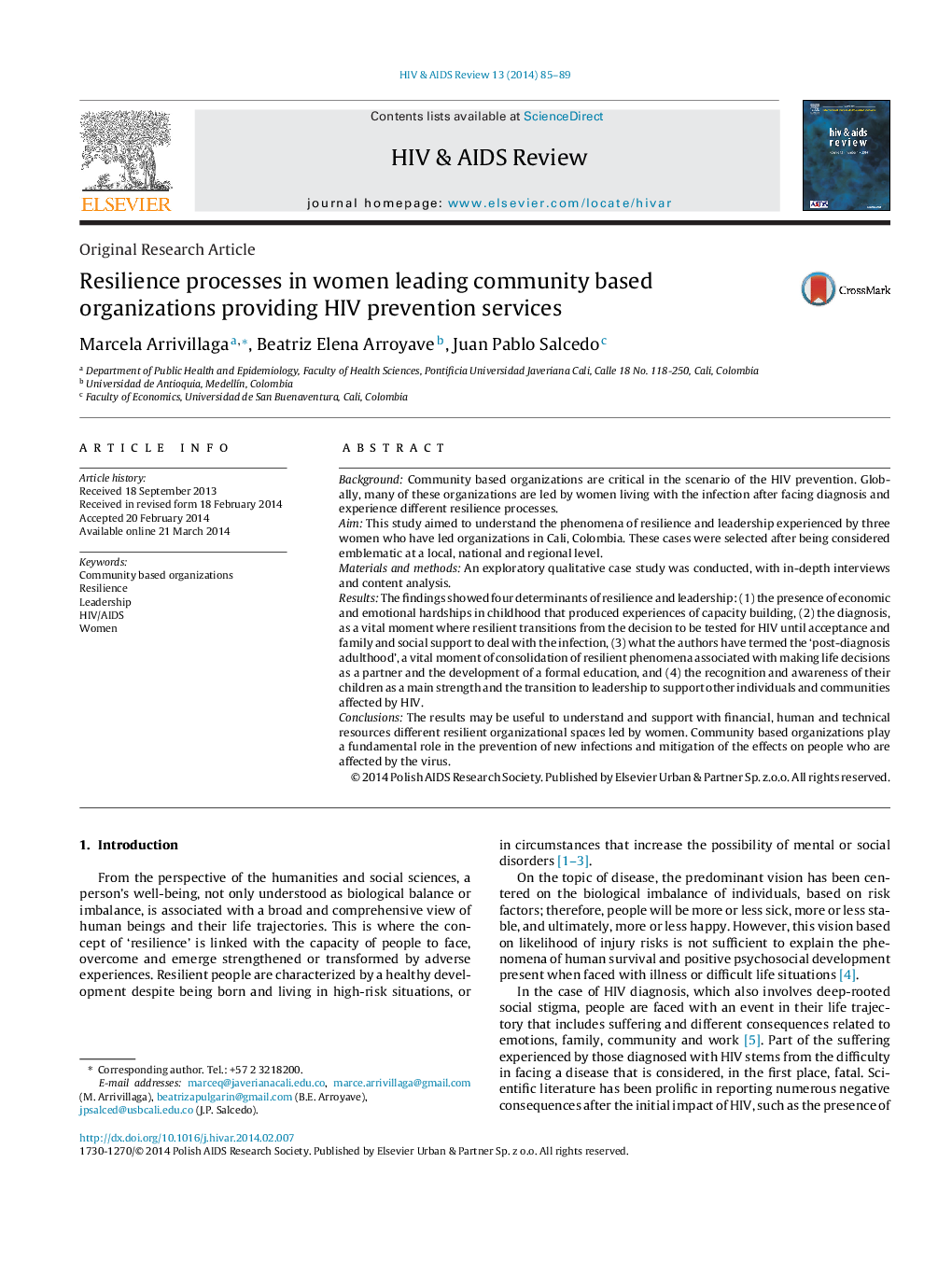| Article ID | Journal | Published Year | Pages | File Type |
|---|---|---|---|---|
| 3332311 | HIV & AIDS Review | 2014 | 5 Pages |
BackgroundCommunity based organizations are critical in the scenario of the HIV prevention. Globally, many of these organizations are led by women living with the infection after facing diagnosis and experience different resilience processes.AimThis study aimed to understand the phenomena of resilience and leadership experienced by three women who have led organizations in Cali, Colombia. These cases were selected after being considered emblematic at a local, national and regional level.Materials and methodsAn exploratory qualitative case study was conducted, with in-depth interviews and content analysis.ResultsThe findings showed four determinants of resilience and leadership: (1) the presence of economic and emotional hardships in childhood that produced experiences of capacity building, (2) the diagnosis, as a vital moment where resilient transitions from the decision to be tested for HIV until acceptance and family and social support to deal with the infection, (3) what the authors have termed the ‘post-diagnosis adulthood’, a vital moment of consolidation of resilient phenomena associated with making life decisions as a partner and the development of a formal education, and (4) the recognition and awareness of their children as a main strength and the transition to leadership to support other individuals and communities affected by HIV.ConclusionsThe results may be useful to understand and support with financial, human and technical resources different resilient organizational spaces led by women. Community based organizations play a fundamental role in the prevention of new infections and mitigation of the effects on people who are affected by the virus.
